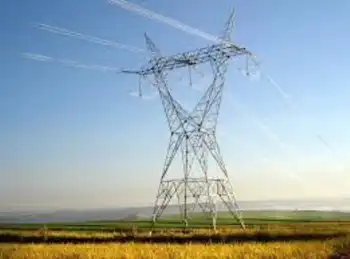China raises nonresidential rates
By Associated Press
Arc Flash Training - CSA Z462 Electrical Safety
Our customized live online or in‑person group training can be delivered to your staff at your location.

- Live Online
- 6 hours Instructor-led
- Group Training Available
The 5.7 percent increase was the first rate-hike since July 2008, when electricity tariffs for nonresidential use rose 5 percent. Residential electricity rates have remained stable since a 1 percent hike in July 2006, but a residential rate increase is planned for early next year, China's main planning agency said in a notice.
The National Development and Reform Commission notice said rate hikes were delayed to prevent increases from hurting businesses already suffering from the global economic slowdown. But with the economy projected to grow more than 8 percent this year, the focus appears to have shifted to long-term planning and energy saving.
Businesses will pay 0.028 yuan (0.4 US cents) per kilowatt hour more, the NDRC said.
The increase will help cushion the impact on power producers of rising costs for coal, which China depends on for about three-quarters of its electricity generation.
The government has also been gradually raising government-set gasoline and diesel prices, which like electricity are cheaper in China than many other countries, to reflect rising global crude oil costs.
The hike raises the tariff for industrial and commercial customers to 0.522 yuan (3.4 US cents) per kilowatt hour. That compares with rates averaging about 10.4 cents in the U.S. and 12 US cents in Japan, according to figures from the U.S. International Energy Agency.
Fuel price increases help alleviate pressures on refiners, who are vulnerable to huge losses when prices for imported crude oil jump, and dovetail with China's desire to limit its reliance on expensive crude oil imports.
The NDRC said the electricity rate increase would help power producers make up for a decline in demand earlier this year because of the economic crisis and help them fund needed improvements to the country's inadequate electricity grid.
Rates for residential users will be adjusted to charge more to heavy users, while keeping the costs for those who consume little more or less unchanged.
China's rates must be adjusted to reflect resource scarcity and encourage conservation, the agency said. But it also said authorities would control increases to help keep inflation in check.
China's power consumption rose nearly 16 percent in October from a year earlier, to 313.4 billion kilowatt hours, the fifth straight month of increases as the economy recovered from a slowdown early this year.
Earlier, Shanghai and other major cities reported brief shortages of power and natural gas due to surging demand due to dropping temperatures.
The government is on a long-term campaign to reduce energy waste, especially by industries. While cost-conscious families tend to skimp on electricity use, overall China uses four times as much energy as the U.S. per dollar of economic output, and more than 11 times that used in Japan.











